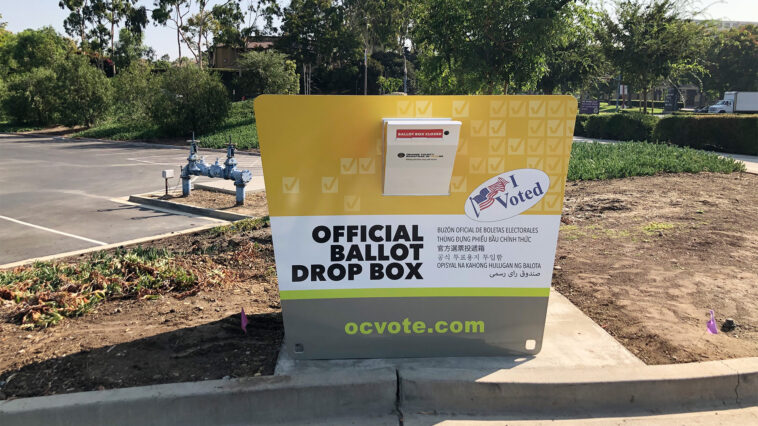The race of California’s sports betting legalization initiatives trying to enter the November ballot is heating up with both new supporters and opponents of the only qualified tribal proposal so far, versus one backed by major sportsbook operators like DraftKings, FanDuel and BetMGM. A new poll has also been released by tribes, showing negative results for the latter.
On Monday, a group of California local elected officials joined California cities and officials throughout the state in opposition to the qualified tribal gaming initiative, called Tribal Sports Wagering Act, which would allow California Indian tribes to offer in-person sports wagering at tribal casinos. Newly announced officials include: Jerry Dyer, Mayor, City of Fresno; Graciela Ortiz, Mayor, City of Huntington Park; Alex Walker-Griffin, Vice Mayor, City of Hercules; David Torres, Councilmember, City of Montebello; Gustavo Camacho, Councilmember, City of Pico Rivera; Hipolito Cerros, Councilmember, City of Lindsay; Jesse Alvarado, Councilmember, City of Hawaiian Gardens; Karina Macias, Councilmember, City of Huntington Park; Luis Chavez, Councilmember, City of Fresno; Marco Barcena, Councilmember, City of Bell Gardens; Marilyn Sanabria, Councilmember, City of Huntington Park; Pat Kearney, Councilmember, City of Lawndale; and Scarlet Peralta, Councilmember, City of Montebello.
They join the coalition already opposed to the qualified tribal gaming measure that is opposed by cities and local government officials across the state, including the California Contract Cities Association – representing 74 cities; Gateway Cities Council of Government; South Bay Cities Council of Government; City of Bell Gardens; City of Commerce; City of Hawaiian Gardens; Cities for Self-Reliance Joint Powers Authority; among others.
They claim that the tribal initiative proposes to amend the State Constitution to guarantee tribal casinos a near-monopoly on all gaming in California – adding exclusivity over roulette, craps and sports wagering to their current monopoly on slot machines — while weaponizing the Private Attorneys General Act (PAGA) so it can be used against tribal casino operators’ legally-operating competition.
“Specifically, this change in the State Constitution allows tribal casinos to hire private trial lawyers and replace the role of the Attorney General to sue their non-tribal competitors. As a result, the measure puts more than 32,000 jobs, $1.6 billion in wages and $5.5 billion in total economic impact at risk. Cities rely on this revenue for resident services such as public safety, housing and homeless programs,” they said in a statement Monday.
Also on Monday, the Coalition for Safe, Responsible Gaming announced that a broad coalition of California Indian tribes, civil rights organizations, homelessness advocates, faith leaders, public safety groups, and business advocates has come out in support of the Tribal Sports Wagering Act, and in strong opposition to the “California Solutions to Homelessness and Mental Health Support Act,” —wich the tribes call the Corporate Online Gambling Proposition— backed by DraftKings, BetMGM, FanDuel, Bally’s Interactive, WynnBET and Penn National Gaming/Barstool Sportsbook through a $100 million contribution.
“Our support of the Tribal Sports Wagering Act is consistent with our long-standing support for disenfranchised communities to become self-sufficient,” said Rick L. Callender, President of the California Hawaii State Conference of the NAACP. “Accordingly, the CA/HI NAACP has grave concerns about the impacts that a massive expansion of online and mobile gambling would have on problem gambling in California—particularly among youth and communities of color.”
Two California cardrooms —Hollywood Park Casino and Parkwest Casino Cordova— filed a lawsuit in the Los Angeles Superior Court last month as their second legal attempt to prevent the initiative from going to the voters, after the state’s Supreme Court refused to hear the case.
A survey commissioned by the Coalition for Safe, Responsible Gaming was released Tuesday, with findings from a survey of 1,094 California voters fielded in April to assess opinions toward the online sports wagering ballot initiative (#21-0017A1) sponsored by the sportsbook operators. Based on the measure’s official Title and Summary as prepared by the Office of the Attorney General, a 53% majority initially opposes the initiative, roughly one third (36%) favor it, and 10% are undecided. Also, if the election were held today, more than twice as many respondents say they would “definitely” vote No (38%) as would “definitely” vote Yes (17%) to allow corporate operators to offer online sports wagering. Furthermore, opposition to the initiative has increased since November 2021, when 42% indicated support, 48% opposition and 10% were undecided, according to the poll conducted by Fairbank, Maslin, Maullin, Metz & Associates.
To simulate a competitive campaign environment with paid advertising, the survey presented respondents with an equal number of statements from proponents and opponents of the measure – five Yes messages and five No messages, pollster Dave Metz explained in a memo. To eliminate a biasing effect, the order of these statements was rotated so that half of the respondents were given Yes statements first then-No statements; the other half heard No statements first then Yes statements.
Following the statements from both sides, voters were asked again to vote on the corporate online initiative. Nearly two-thirds (64%) vote No, including almost half (48%) who say they would “definitely” vote No. After these statements, support declines by 11 points to one in four voters (25%), while one in ten (11%) remain undecided.
The initiative needs a total of 997,139 verified voter signatures to appear on the 2022 ballot. Back in March, according to California’s Secretary of State’s website, the “California Solutions to Homelessness and Mental Health Support Act,” was the only sports betting campaign currently in circulation to reach the 25% signature threshold. “We hit that threshold months ago, and we continue to make steady progress toward our goal. We are very much on track to qualify,” Nathan Click, spokesperson for the campaign, said then.
If approved by voters in November, the measure would allow qualified sportsbook operators to partner with California Tribal Nations to operate online sports betting in the state. Also, it would allocate 85% of revenue to the California Solutions to Homelessness and Mental Health Support Account, which will help combat homelessness and mental health issues in the state. The additional 15% of revenue will be allocated to the Tribal Economic Development Account, which will provide economic development and assistance to tribes in the state who do not participate in the online sports betting program.
A third initiative is supported by the mayors of San Jose, Colma, Inglewood and Gardena alongside major cardroom operators, and would legalize online and in-person sports betting while also permitting licensed cardrooms to offer additional card and tile games currently limited to tribal casinos.
There is also a fourth initiative, presented last November by the San Manuel Band, the Rincon Band of Luiseño Indians, the Federated Indians of Graton Rancheria, and Wilton Rancheria, which seeks to give tribes exclusive rights for operating both in-person sports betting on tribal lands and online gambling statewide. It also promises funds to solve California’s homeless struggles as it would send 85% of tax revenue per year toward helping people secure housing. In January, it was cleared to begin collecting petition signatures for the November 2022 ballot.
California’s sports betting legalization, called to be the next big market in the US, would be supported by 45% of voters, while more than 1 in 5 claims to be undecided, according to a new poll released late Febraury by the University of California’s Berkeley Institute of Governmental Studies in collaboration with the Los Angeles Times.
State law allows proponents of a ballot initiative to withdraw their measure any time before the final deadline on June 30.





